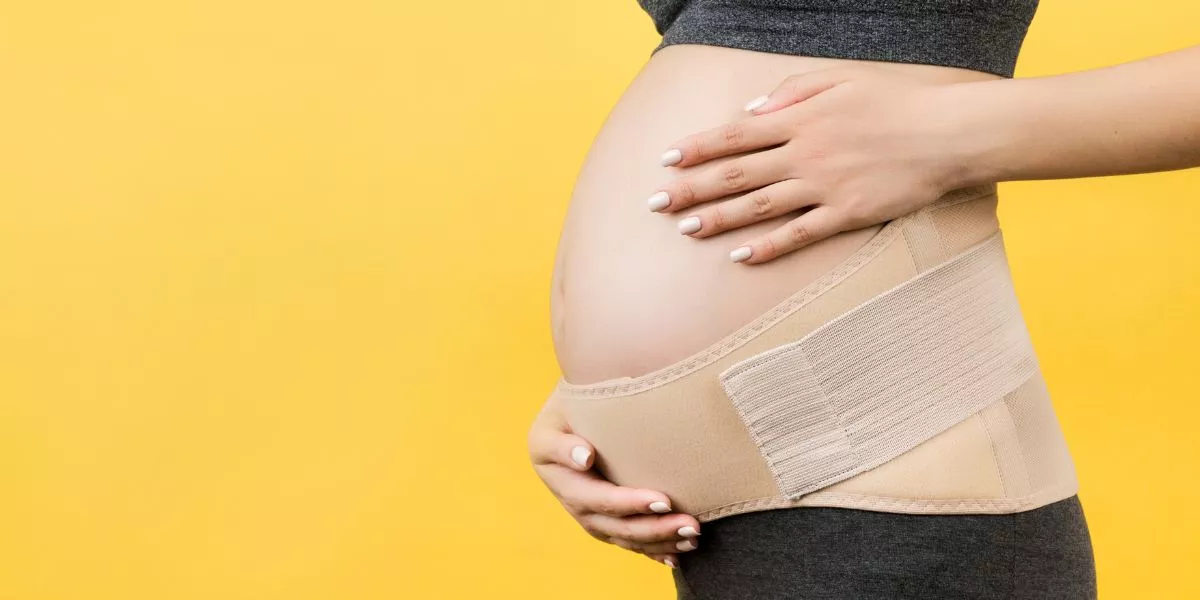
Wearing a belly band during pregnancy can significantly impact your comfort and well-being, but have you considered how it can also benefit your baby? The advantages extend beyond your physical relief, potentially influencing your baby’s position and development. As you navigate the wonders of pregnancy, understanding these additional advantages might offer you a unique perspective on the importance of using a belly band.
Alleviating Back Pain
To relieve back pain during pregnancy, consider using a belly band for added support and comfort. As your baby bump grows, the extra weight can put strain on your back, leading to discomfort and pain. A belly band can help by providing gentle compression and lift to alleviate some of this pressure. By supporting your lower back and abdomen, the belly band promotes better posture and reduces the strain on your muscles, making daily activities more manageable.
Wearing a belly band can also help distribute the weight of your baby more evenly, reducing the likelihood of developing back pain. The band wraps snugly around your midsection, offering a secure and supportive embrace that can make a noticeable difference in your comfort level throughout the day. Whether you’re sitting at your desk, going for a walk, or simply moving around the house, the belly band can provide the extra support you need to ease back pain and stay active during your pregnancy.
Improving Posture
Improving your posture can be achieved by wearing a belly band during pregnancy to provide support and alignment for your growing belly. As your belly expands during pregnancy, your center of gravity shifts, often causing strain on your back muscles and leading to poor posture. A belly band helps by gently lifting and supporting your bump, which encourages you to stand and sit with better posture. By maintaining proper alignment, you can prevent slouching and relieve pressure on your lower back. This improved posture not only reduces discomfort but also promotes better spinal health throughout your pregnancy.
Moreover, wearing a belly band can remind you to engage your core muscles, further enhancing your posture. These muscles play a crucial role in supporting your spine and can weaken as your pregnancy progresses. The gentle compression provided by the belly band acts as a subtle cue to activate your core, helping you maintain a more stable and upright posture. By utilizing a belly band for posture support, you can minimize aches and pains while promoting overall physical well-being during this transformative time.
Supporting Abdomen and Hips
Supporting your abdomen and hips during pregnancy can be effectively achieved through the use of a belly band. It provides essential support and stability as your body undergoes significant changes. As your baby grows, your abdomen expands, putting strain on your back and hips.
A belly band helps lift and redistribute the weight of your belly, reducing pressure on your lower back and pelvis. By offering gentle compression and support, it helps alleviate discomfort and promote better posture. The band can also provide extra support to your hips, which may widen during pregnancy in preparation for childbirth. This added stability can help reduce the risk of pelvic pain and symphysis pubis dysfunction.
Additionally, the gentle compression around your hips can offer relief from round ligament pain, a common discomfort during pregnancy. Overall, wearing a belly band can help you move more comfortably and confidently as your body adjusts to the changes of pregnancy.
These benefits make a belly band a valuable tool for managing the physical challenges of pregnancy, supporting your well-being throughout this important time in your life.
Enhancing Comfort and Mobility
Enhance your comfort and mobility during pregnancy by utilizing a belly band to provide additional support and relieve strain on your body.
As your belly grows, it can put a significant amount of pressure on your back and pelvis, leading to discomfort and difficulty moving around.
A belly band can help by lifting and supporting your expanding belly, reducing the strain on your lower back and hips.
This added support can make daily activities such as walking, standing, or even sitting for long periods more comfortable and manageable.




